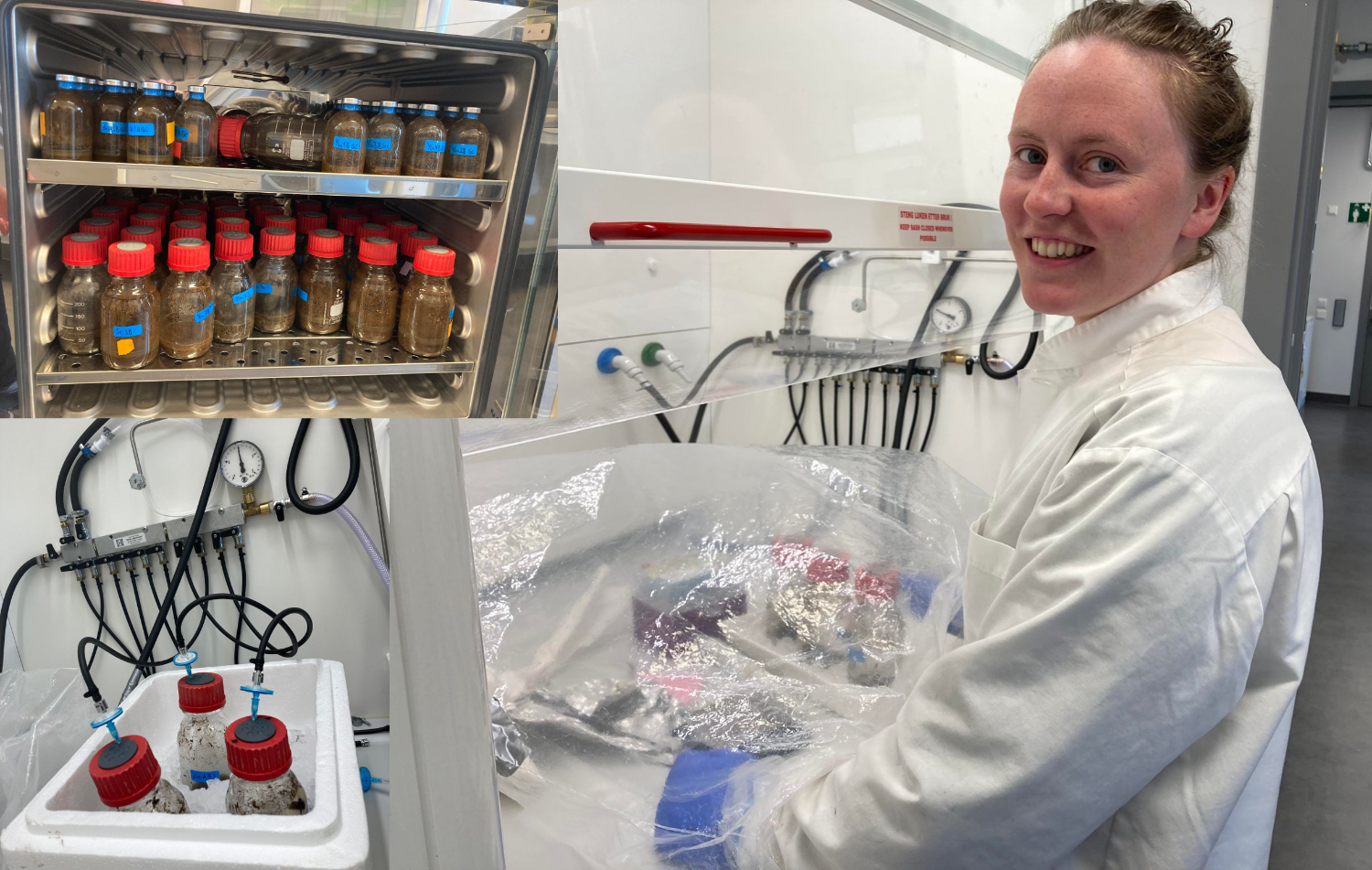Regulation patterns and molecular processes in living cells are fundamental to explain the success of organisms in different life stages, environmental conditions and ecosystems. Comprehensive knowledge of genes, their organisation in the genome and their products in the cell is the key to describe prokaryotic and eukaryotic life forms. If you want to explore the molecular and cellular principles of life and its interface with environmental factors, then seek an education in molecular environmental biology.
This study programme requires compulsory attendance to the introductory meeting.Admission requires:
- bachelor’s degree (180 ECTS) or an equivalent degree following a programme of study of minimum 3 years.
- a minimum of 80 ECTS in the bachelor's degree must include a specialization in biological topics [i.e., biodiversity (zoology/botany), ecology, cell- and molecular biology, microbiology, physiology (animal/plant), biochemistry and bioinformatics].
- a minimum of 10 ECTS in basic and practical molecular biology (BIO-2018 or equivalent) or documenting hands-on molecular lab experience through a bachelor thesis.
- a minimum grade average comparable to a Norwegian C (3,0) in the ECTS scale. The average grade is calcualted from the entire bachelore´s degree.
- proof of English language proficiency. (Applicants with education from non-Nordic countries. You will find more information of English language requirements here.)
Applicants with a degree in Agricultural, Fisheries and Aquaculture studies, Biomedical laboratory sciences ("Bioingeniør"), or Bachelor of Pharmacy, Medicine or Dentistry do not fulfil the admission requirements.
How to apply for admission to UiT? Read more here
Non-EU students must be prepared to pay tuition fees, more information here
Non-EU applicants: 2079
EU/EEA + Swiss applicants:7113
Nordic applicants: 6023
Program description
The specialization in Molecular Environmental Biology focuses on the physiological and molecular analysis of plants and microorganisms. Research areas cover a broad range of contemporary research topics ranging from functional plant and microbial molecular biology and physiology and plant/microbe interactions to bioinformatic analysis and modelling. The common theme of our discipline is understanding interactions within, and between cells and between organisms and their environment at a cellular and molecular level. The Master students will be offered an opportunity for a molecular study within one selected field of research and the participation in an ongoing research project.
During the master´s study the students will be given the opportunity to choose from a variety of different courses applying modern methods of experimental molecular biology and bioinformatics for the study of plant and microbe systems. All courses are designed specifically to prepare the candidates for their master’s thesis.
Students will be an integral part of the Microorganisms and Plants Rearch Group and are expected to participate actively.
Learning outcomes
The specialization in Molecular Environmental Biology gives you advanced knowledge in one of the following topics:
- intra- and interspecies communications and molecular interactions.
- functioning dynamics and biotechnological application of microbial communities in a changing world.
- secondary metabolites in microbes and plants, their biological functions and applied aspects.
- bioinformatics and scientific programming.
You will also gain knowledge within molecular methods.
Job prospectives
The Master’s degree in Biology will allow you to qualify for different career paths and prepare you to step into a professional role or to apply for a PhD.
A Master of Science degree in Biology will prepare you for a wide range of jobs, in both public and private sectors, including research, resource and nature management, administration, consulting and the teaching profession.
The master thesis can play an important role to establish your domain of expertise and to showcase acquired technical and soft skills. Also, it can be very important in building scientific and professional network, that will be a support in your future job search.
Degree Name
Master's of Science in Biology.Access to further studies
On successful completion of the degree programme, students may be qualified for admission to a PhD-programme in Biology at the UiT or elsewhere.
Studieplan
Language of instruction
The language of instruction and all syllabus material is English.
Teaching and assessment
Several teaching and assessment methods are employed, including lectures, seminars, laboratory work, computer lab and field courses. These will vary from course to course.
Course examinations may be oral or written examinations, assessments of project work/ lab reports/field reports, often in combination.
Supervision of the project work that leads to the writing of the Master`s thesis will be given by faculty staff, sometimes in co-operation with an external supervisor.
Students can undertake periods of studying at The University Centre at Svalbard (UNIS).
International exchange during an entire semester is not possible in the first year of studies due to obligatory courses.
Stays abroad can take place as part of a master project in the third and fourth semester. Please consult the program study adviser for more information.
Studiesteder du kan utveksle til
Saga Svavarsdottir
SeniorrådgiverVil du vite hvordan det er å være student ved UiT? Følg @uitstudent på Instagram eller TikTok, hvor studenter deler fra livet på universitetet. Her får du praktiske tips om studier og studentliv, nyttig informasjon om campus og muligheten til å stille spørsmål om alt du lurer på.
For mer informasjon om studietilbud, forskning og muligheter direkte fra UiT, kan du følge @uitnorgesarktiske på Instagram eller TikTok. Her finner du offisielle oppdateringer og innsikt i hva universitetet har å tilby.



